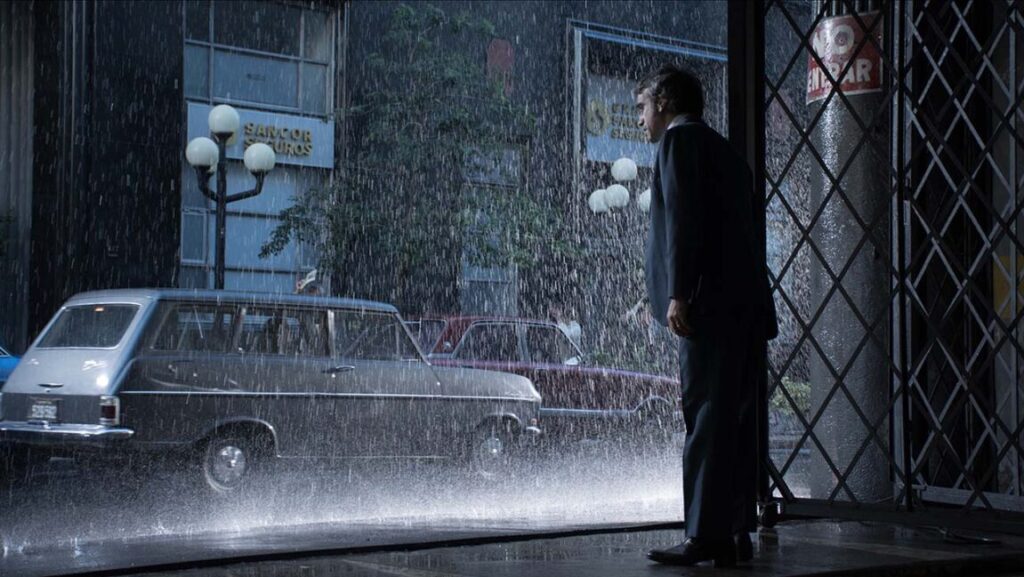Federico Veiroj’s The Moneychanger is a mess — an overly familiar rise-and-fall narrative that’s been stripped of all meaningful detail and specificity, with a sketchy character study nestled in the center. It is, perversely, a study of an unrepentant loser, a mook, a moocher who stumbles ass-backwards into success thanks to a rigged system. It’s a fairly rote rebuke of capitalism, and an amusing take down of mediocre male privilege, here detailed in the story of Humberto Brause (played with an unfailing devotion to looking ridiculous by Daniel Hendler), who, over the course of two decades, becomes the de facto head of money laundering operations for most of southern Latin America. After a ridiculous introduction, where Brause (who narrates most of the film) declares money “the root of all evil” over a scene of Jesus of Nazareth flipping over banker’s tables, Veiroj attempts to walk a fine line between documentation and absurdity, like mixing Goodfellas with Syriana and Buñuel. He’s not particularly successful at it. There’s a disconnect between the relatively staid visuals and Hendler’s loopy, goofball demeanor. The actor gets a lot of comedic mileage out of a ridiculous mustache and a droopy hound-dog face, but he never convinces as someone who could accomplish what his character supposedly does.
Starting in the 1950s as a young apprentice, Brause begins his wayward journey by handling money for corrupt politicians that his boss won’t touch. He gets busted and goes to jail, but the film skips over most of this. Brause gets out and almost immediately starts breaking the law again. In showing dealings with various shady characters in Brazil and Argentina, Veiroj flirts with a whole lot of geopolitical history, invoking the specter of U.S.-funded dirty wars and violent regime change all over the continent. Like most everything else in the movie, this stuff exists mostly in the margins; Veiroj never gets into the nitty-gritty details of how these dealings would actually work. Like Brause’s marriage and children, everything becomes a stripped down plot point, a narrative cog, something to get Brause from point A to point B and create conflict. Ultimately, Veiroj can’t seem to reconcile the main contradiction here: that Brause is a coward and a simpleton who somehow becomes massively successful through currency manipulation and a willingness to make deals with all sorts of unsavory types. That contradiction is clearly part of the point, and the basis for much of the film’s dry comedy, but by making Brause a mostly passive observer, Veiroj also seems to be letting him — and by extension the audience — off the hook.
Published as part of New York Film Festival 2019 | Dispatch 2.


Comments are closed.